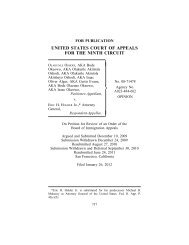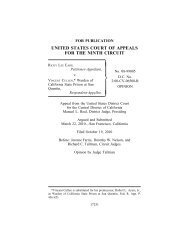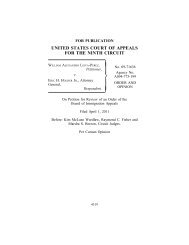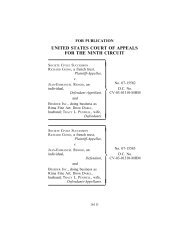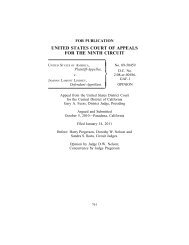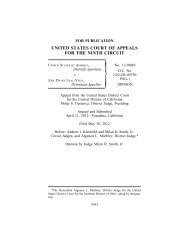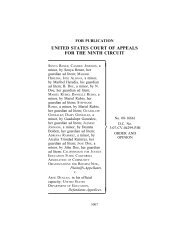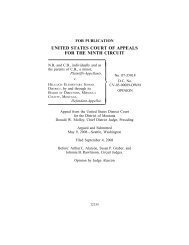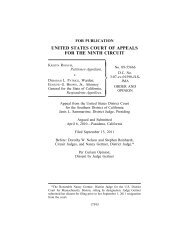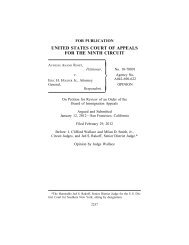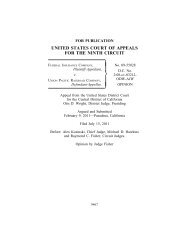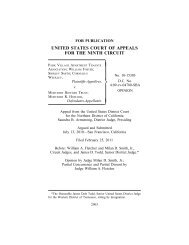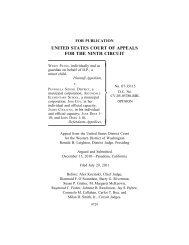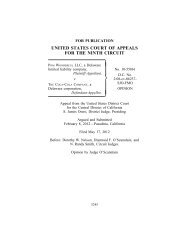USA v. Xavier Alvarez - Ninth Circuit Court of Appeals
USA v. Xavier Alvarez - Ninth Circuit Court of Appeals
USA v. Xavier Alvarez - Ninth Circuit Court of Appeals
Create successful ePaper yourself
Turn your PDF publications into a flip-book with our unique Google optimized e-Paper software.
UNITED STATES v. ALVAREZ<br />
interest is important to motivating our military. Especially at<br />
a time in which our nation is engaged in the longest war in its<br />
history, Congress certainly has an interest, even a compelling<br />
interest, in preserving the integrity <strong>of</strong> its system <strong>of</strong> honoring<br />
our military men and women for their service and, at times,<br />
their sacrifice.<br />
[18] However, the government has not proven here that the<br />
speech restriction is a narrowly tailored means <strong>of</strong> achieving<br />
that noble interest. In Brown v. Hartlage, the Supreme <strong>Court</strong><br />
explained,<br />
Although the state interest in protecting the political<br />
process from distortions caused by untrue and inaccurate<br />
speech [or, in this case, the state interest in<br />
protecting the integrity <strong>of</strong> our national military decoration<br />
system] is somewhat different from the state<br />
interest in protecting individuals from defamatory<br />
falsehoods, the principles underlying the First<br />
Amendment remain paramount. Whenever compatible<br />
with the underlying interests at stake, under the<br />
regime <strong>of</strong> that Amendment “we depend for . . . correction<br />
not on the conscience <strong>of</strong> judges and juries but<br />
on the competition <strong>of</strong> other ideas.” In a political<br />
campaign, a candidate’s factual blunder is unlikely<br />
to escape the notice <strong>of</strong>, and correction by, the erring<br />
candidate’s political opponent. The preferred First<br />
Amendment remedy <strong>of</strong> “more speech, not enforced<br />
silence,” thus has special force.<br />
11879<br />
456 U.S. 45, 61 (1982) (quoting Gertz, 418 U.S. at 339-40,<br />
and Whitney v. California, 274 U.S. 357, 377 (1927) (Brandeis,<br />
J., concurring)) (ellipses in original). Here, <strong>Alvarez</strong>’s lie,<br />
deliberate and despicable as it may have been, did not escape<br />
notice and correction in the marketplace. The preferred First<br />
Amendment remedy <strong>of</strong> “more speech” thus was available to<br />
repair any harm. See also Johnson, 491 U.S. at 419 (“ ‘[N]o<br />
danger flowing from speech can be deemed clear and present,



